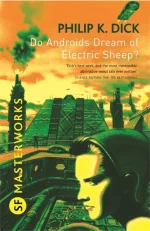- Joined
- Jul 1, 2011
- Messages
- 103,734
- Reaction score
- 112,637
- Gender
- Male
- Political Leaning
- Progressive
Yep. We liked that one a lot.
Yep. We liked that one a lot.



The author makes the case that the more things change, the more things stay the same. The New Harmony commune in Indiana collapsed in ruins in the 1820's and 1830's. Some similar colonies fared marginally better, some worse. Some became sexual playgrounds for their leaders. Certain exploits, including those of the famous researching Alfred Kinsey, are unprintable.Daniel Flynn said:The Pilgrims, like America's secular communists of the nineteenth century, hoped to build a city upon a hill. And like other sectarian groups that later found refuge in America, the Pilgrims attempted to build their utopia upon communist principles****Under communism, which reigned in Plymouth colony from 1620 to 1623, Pilgrim bellies and investor wallets starved, Historians look back and ascribe myriad causes for these lean years. But the man whom the Plymouth colonists elected as their governor more than thirty times emphasized the role communism played in the colony's early woes. In Of Plymouth Plantation, William Bradford wrote:
William Bradford said:"For the young men, that were most able and fit for labour and service, did repine that they should spend their time and strength to work for other men's wives and children without any recompense."
A Conservative History of the American Left is clearly a tour d'force and worth the read (though it is a slog because so much information is new and unfamiliar). Then why am I giving it a "four?" The author does indulge in some demonization of the Left. While I am no fan of FDR, he comes close to calling him a Communist. Like many books of this genre, for example The Rise of the New Puritans: Fighting Back Against Progressives' War on Fun by Noah Rothman, The Dying Citizen: How Progressive Elites, Tribalism, and Globalization Are Destroying the Idea of America by Victor Davis Hanson and others, the books do not concede any redeeming value to other beliefs. Put simply, they are strident.Daniel Flynn said:Hysteria over global warming combined the worst of the primitive and the modern. Global warming emerged as the Armageddon for people who ridicule people who believe in Armageddon. The disturbing omens that primitives divined from mysterious eclipses, crippling droughts, and foreboding skies, urban sophisticates saw in ever-so-slight changes in the weather-save they had the nerve to call their auguries science. From the climate-controlled, indoor world where man presses a button to make it hot or cold, breezy or not, man hubristically imagined himself the master of the outdoor weather, too. Not the sun, not volcanoes, not the wind currents, but man was exclusively responsible for global warming a theory more heavily steeped in narcissism than pre-Copernican notions of a geocentric universe. And if gluttonous man could destroy the world, enlightened man could save it. Global warming allowed true believers to cast enemies as evil destroyers and themselves as noble redeemers.
Mankind stood on the brink of the end times. Sacrifices to the gods-offerings of recycled cans, forbearance from flushing the toilet, holocausts of SUVs-might appease Mother Nature. Failure to make the proper oblations certainly would unleash her righteous wrath.
Quoting Al Gore:
…. (T)he solutions curiously antedated, and are endorsed independent of, the problem. Public restrictions on use of private property, state punishment of large corporations, international bodies dictating national laws, and other long-standing dreams of the Left somehow reemerged as curatives to environmental woes. Alas, if the problem disappeared, the true believers would urge enactment of these suspect solutions as enthusiastically as ever.Al Gore said:“Nobody is interested in solutions if they don’t think there’s a problem…Given that starting point, I believe it is appropriate to have an over-representation of factual presentations on how dangerous it is, as a predicate for opening up the audience to listen to what the solutions are, and how hopeful it is that we are going to solve this crisis."
This little vignette, from Guns, Germs, and Steel: The Fates of Human Societies by Jared Diamond has little to do with the central topic. It is one of the ingenious touches that the author employs to maintain people's focus through a very dense and scholarly work. To say the book is exhaustively researched would be an understatement.Excerpt from Guns said:This book, like probably every other typed document you have ever read, was typed with a QWERTY keyboard, named for the left-most six letters in its upper row.
Unbelievable as it may now sound, that keyboard layout was designed in 1873 as a feat of anti-engineering. It employs a whole series of perverse tricks designed to force typists to type as slowly as possible, such as scattering the commonest letters over all keyboard rows and concentrating them on the left side (where right-handed people have to use their weaker hand).
The reason behind all of those seemingly counterproductive features is that the typewriters of 1873 jammed if adjacent keys were struck in quick suc-cession, so that manufacturers had to slow down typists. When improvements in typewriters eliminated the problem of jamming, trials in 1932 with an efficiently laid-out keyboard showed that it would let us double our typing speed and reduce our typing effort by 95 percent. But QWERTY keyboards were solidly entrenched by then.
I just gave this as a gift to friend.This should make for a few interesting days of comparison and contrast. Wisdom is wherever you stumble upon or trip over it.
View attachment 67514448
This book tells us a lot both about the Gilded Age, aabout common sense, and views of history.Henry Frick as quoted in Meet You In Hell said:As I understand it, then, the proposition is to pledge the United States, now the richest and most powerful nation in the world, to pool its resources with other countries, which are largely its debtors, and to agree in advance to abide by the policies and practices adopted by a majority or two-thirds of its associates; that is, to surrender its right of independence of action upon any specific question whenever such a question may arise....Well, I am opposed to that. Of course I am. I don't see how any experienced businessman could fail to be, Why, it seems to me a crazy thing to do."
I just finished reading Meet You in Hell: Andrew Carnegie, Henry Clay Frick, and the Bitter Partnership That Changed America (Paperback) by Les Standiford. Over the years, Carnegie has had a more beneficent image. Frick gets the moniker of being the "bad boy" who unleashed unnecessary bloodshed at the Homestead Steel Mill in 1892. It seems that Carnegie almost deliberately absented himself, left the hard decisions to others and let others take the blame for actions that he "was for until he was against."
As for the book itself I give it a 3.5, rounding it up to four stars. Until the descriptions of the end of the strike and the legal bloodbath between Carnegie and Frick, it does move slowly. For history buffs it is a very worthwhile read.
Frick, obviously intelligent, correctly foresaw what the results of world governance would be:
This book tells us a lot both about the Gilded Age, aabout common sense, and views of history.

